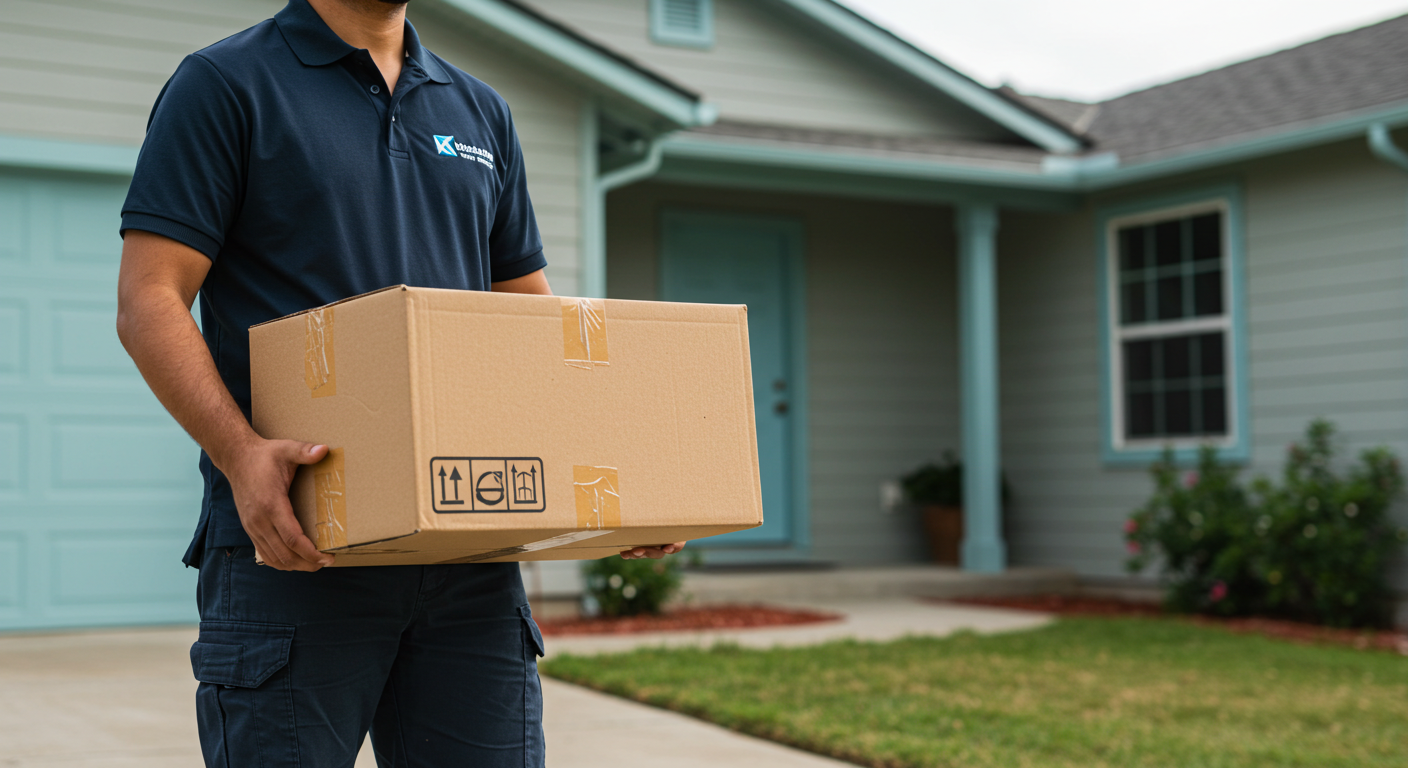
When shipping cargo internationally, choosing the right logistics method is crucial for cost-efficiency and timely deliveries. Two primary options dominate the freight forwarding industry: Door-to-Door Shipping and Port-to-Port Shipping. But which one is best for your business? Let’s break down both shipping methods to help you make an informed decision.
What is Door-to-Door Shipping?
Door-to-door shipping is a comprehensive service where a freight forwarder handles the cargo from the seller’s location to the buyer’s final destination. This includes pick-up, customs clearance, and last-mile delivery.
One of the biggest advantages of door-to-door shipping is convenience. The freight company takes care of everything, reducing logistics headaches. It also saves time since the entire process is managed end-to-end. Another benefit is better cost prediction, as you receive an all-inclusive shipping cost with no hidden charges. Plus, the freight forwarder ensures all necessary customs clearances are handled.
However, door-to-door shipping tends to be more expensive due to additional handling and last-mile delivery. You also rely on the freight forwarder’s preferred network, which may not always be the cheapest option.
What is Port-to-Port Shipping?
Port-to-port shipping is a more flexible and cost-effective freight forwarding service where the cargo is transported from one port to another. The responsibility for pick-up and delivery lies with the shipper and receiver.
This method is generally more affordable than door-to-door shipping since last-mile delivery is excluded. It also provides more control, allowing shippers to choose their transportation methods for pickup and final delivery. Businesses shipping large quantities often prefer this option.
On the downside, port-to-port shipping places more responsibility on the shipper. You must manage inland transport and customs clearance, which can lead to delays if logistics aren’t well-coordinated.
Door-to-Door vs. Port-to-Port: A Quick Comparison
Door-to-door shipping offers higher convenience but comes at a higher cost. It is ideal for businesses that want a hassle-free shipping experience. On the other hand, port-to-port shipping is more budget-friendly and provides greater flexibility, but requires additional coordination. The best choice depends on your business needs.
Decoding Shipping Terms: CIF vs. C&F (and FOB, CFR, CNF)
When choosing between door-to-door and port-to-port shipping, you’ll also come across Incoterms like CIF (Cost, Insurance, and Freight) and C&F (Cost and Freight). Understanding these terms can further streamline your logistics planning.
CIF covers shipping, insurance, and freight costs until the destination port. C&F includes shipping and freight but not insurance. FOB means the seller covers costs until the cargo is loaded onto the vessel. CFR is similar to C&F but used primarily for sea shipments. CNF is another term for C&F used interchangeably.
Read more about shipping terms
Which Shipping Method is Right for You?
The best option depends on your business size, shipment volume, and logistics capacity. If you prefer a hassle-free experience, door-to-door shipping is the way to go. If you want to reduce costs and have logistics expertise, port-to-port shipping is a better choice.
For high-value goods, consider CIF for added insurance protection. For bulk cargo, FOB or CFR might be a better fit.
How Alliance Freight Can Help
At Alliance Freight, we offer both door-to-door and port-to-port services, ensuring smooth logistics for businesses shipping cargo from Dubai to Saudi Arabia and beyond. Our expertise in freight forwarding allows us to recommend the best Incoterms for your needs.
Final Thoughts
Choosing between door-to-door and port-to-port shipping depends on your business priorities. If you value convenience, door-to-door is the best choice. If you want flexibility and cost savings, port-to-port may be the way to go. No matter your choice, Alliance Freight is here to streamline your logistics with expert solutions.
Need expert advice? Contact us today!